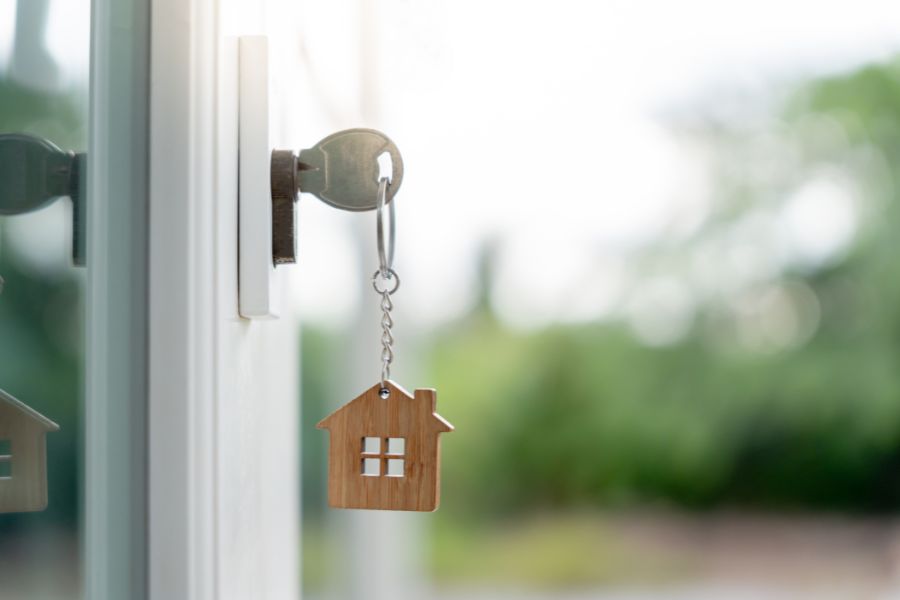Home maintenance advice
What to do if you’re an accidental landlord
07 Nov 2023 • 5 minutes

Home maintenance advice
07 Nov 2023 • 5 minutes

In an ever changing property market, more and more UK homeowners are finding themselves becoming accidental landlords.
While it may seem a little niche to think that people could fall into the world of rental property ownership accidentally, recent research carried out on behalf of HomeServe* found that 6% of UK property owners have found themselves in a position where they’re letting out their property through necessity rather than choice. If that’s you, then you’re in the right place.
In this guide we’ll be giving you all the information you need to keep your properly running as smoothly as possible. From your responsibilities as a landlord, to protecting your home from unwanted repairs – we’ve got you covered.
Exactly as the name may suggest, it’s when someone has a change in circumstances that means they become a landlord without planning to do so.
There are many reasons that this could happen, however the top 3 reasons people usually become an accidental landlord are:
In normal circumstances the natural next step in these situations would be to sell up and move, but unfortunately that’s not always possible. This often results in homes being made into rental properties – meaning monthly mortgage payments are made using rental money, allowing the homeowner to make their desired move.
When it comes to advice on your mortgage, it’s really important that you speak to a Mortgage Advisor so you can talk through what options might be best for you going forward.
In many cases, when it comes to becoming a landlord, you’re likely to be offered the opportunity to change to 2 types of mortgage:
This gives you the chance to rent out your property without the need to change your mortgage. This is most likely to be agreed if you’re planning on renting out the property on a short-term basis while you try and sell it, or if you’re moving away for a short period and then moving back.
Your other option is to change your current mortgage to a Buy to Let mortgage, which allows you to let out your property on a longer term basis.
For more information on this, you can find out more by visiting the Online Mortgage Advisor and find out about your options in more detail.
It’s not a legal requirement for you to have landlord insurance, but if you’re renting out your home then it’s probably wise to get landlord cover. That way, you’re covered should anything go wrong at your property.
There are obviously risks that come with renting your property, and as a landlord a lot of it is out of your control. Taking out a landlord insurance policy can protect you from some of these risks, but it will depend on the level of policy you take out so it’s worth looking at what is right for you and your home.
If you’re not prepared to become a landlord then you may find that there are a few stumbling blocks that you come across as you first experience looking after tenants in your home. This often comes down to lack of knowledge and time.
From our research*, we’ve found that nearly 74% of UK landlords have experienced an emergency in the properties they rent out. Breaking this down further, we know that 31% have had issues with their boiler, 29% have had heating faults and 28% have reported problems with their plumbing.
This can be particularly tricky if you’ve relocated for work, or a partner, or if you’ve inherited your home. Fortunately though, there are ways of learning what your responsibilities are or maybe even better, getting help from a third party to help with things such as maintenance and repairs.
Whether you become a landlord accidentally or not, you’ll face the same legal obligations as anyone else. It’s important to know that these can vary depending on where you are in the UK, but they generally include the following:
As we’ve touched upon previously, the biggest headache faced by landlords, accidental or otherwise is maintaining the property.
In fact, it’s reported that a staggering 95% of UK landlords have experienced costs that relate to unexpected maintenance in their properties within the last 12 months. On average landlords spent £3,194 to resolve issues in the homes they rent.
We’ve been looking after UK homes and offering peace of mind to our customers for over 30 years. Our Home Emergency Cover offers landlords, accidental or otherwise, the chance to protect the plumbing, heating and electrics in their rental property – should something go wrong.
To find out more, visit our product pages and find out what cover might suit you and your situation best.
*The research mentioned in this article was conducted by Opinium Research on among 2,000 UK adults between 20.10.2023 – 24.10.2023 on behalf of HomeServe.
Our help & advice articles cover Plumbing, Home heating, Electrical, Energy-saving and Home maintenance.